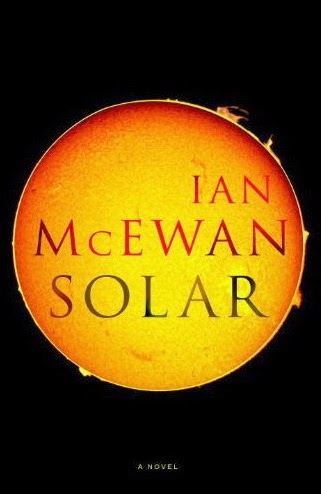 |
| Photo: Annalena McAfee |
Although I have only read the first two books listed here, Ian McEwan (M) is fast becoming one of my favourite writers because of his attention to social issues and his style of literary fiction.
I found that both On Chesil Beach and Atonement dealt with controversial subjects with great insight, and were challenging but ultimately rewarding reads.
On Chesil Beach (2007)
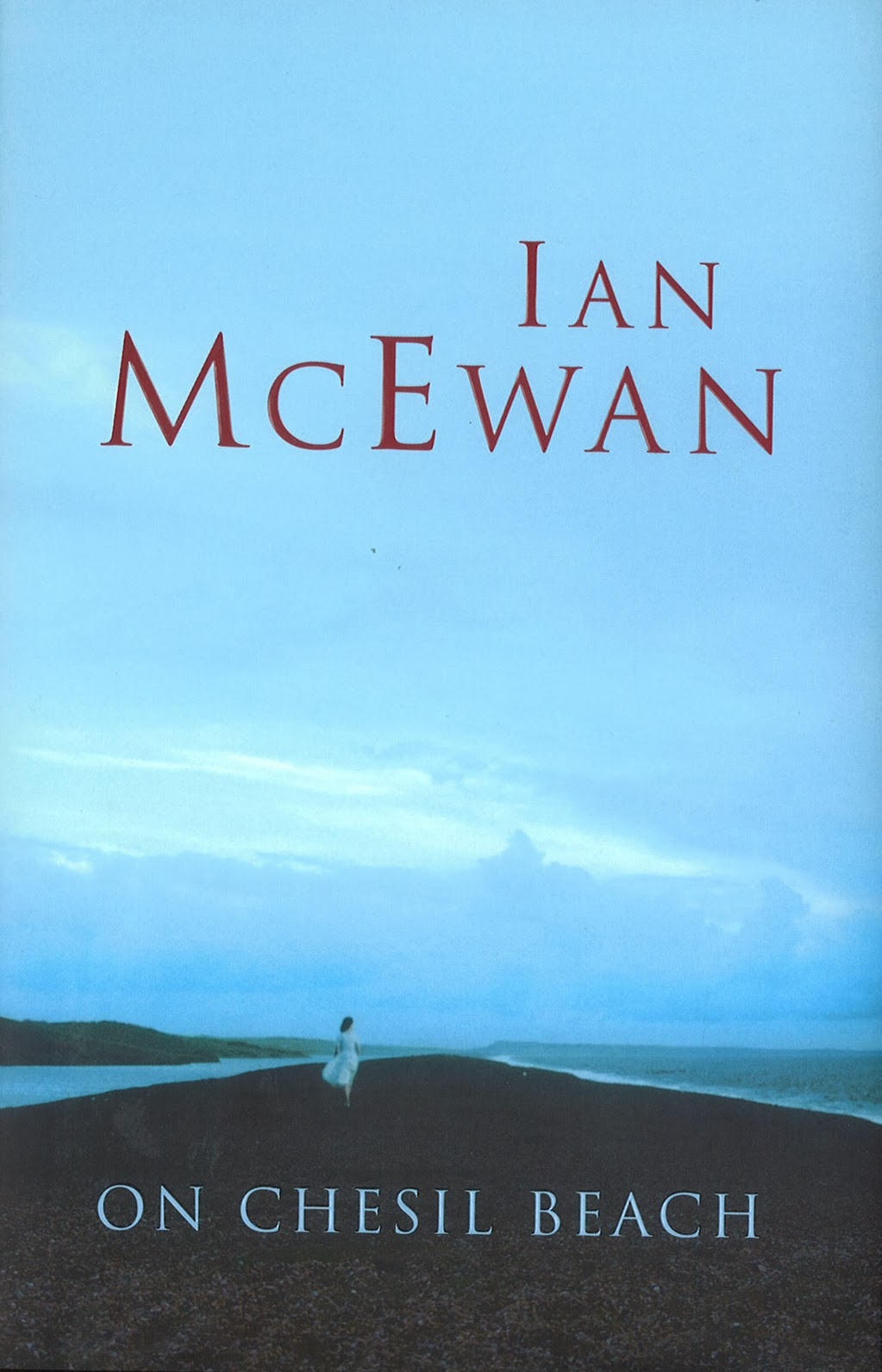 On a summer evening in 1962, Florence and Edward arrive at their honeymoon destination on Chesil Beach in Dorset. As they sit down to dinner a growing sense of awkwardness pervades their happy day, as neither is able to express their fears and anxieties about wedding night expectations. Unabashedly intimate and complex, McEwan explores the impact of ignorance and the lasting significance of a word not spoken.
On a summer evening in 1962, Florence and Edward arrive at their honeymoon destination on Chesil Beach in Dorset. As they sit down to dinner a growing sense of awkwardness pervades their happy day, as neither is able to express their fears and anxieties about wedding night expectations. Unabashedly intimate and complex, McEwan explores the impact of ignorance and the lasting significance of a word not spoken.
Atonement (2001)
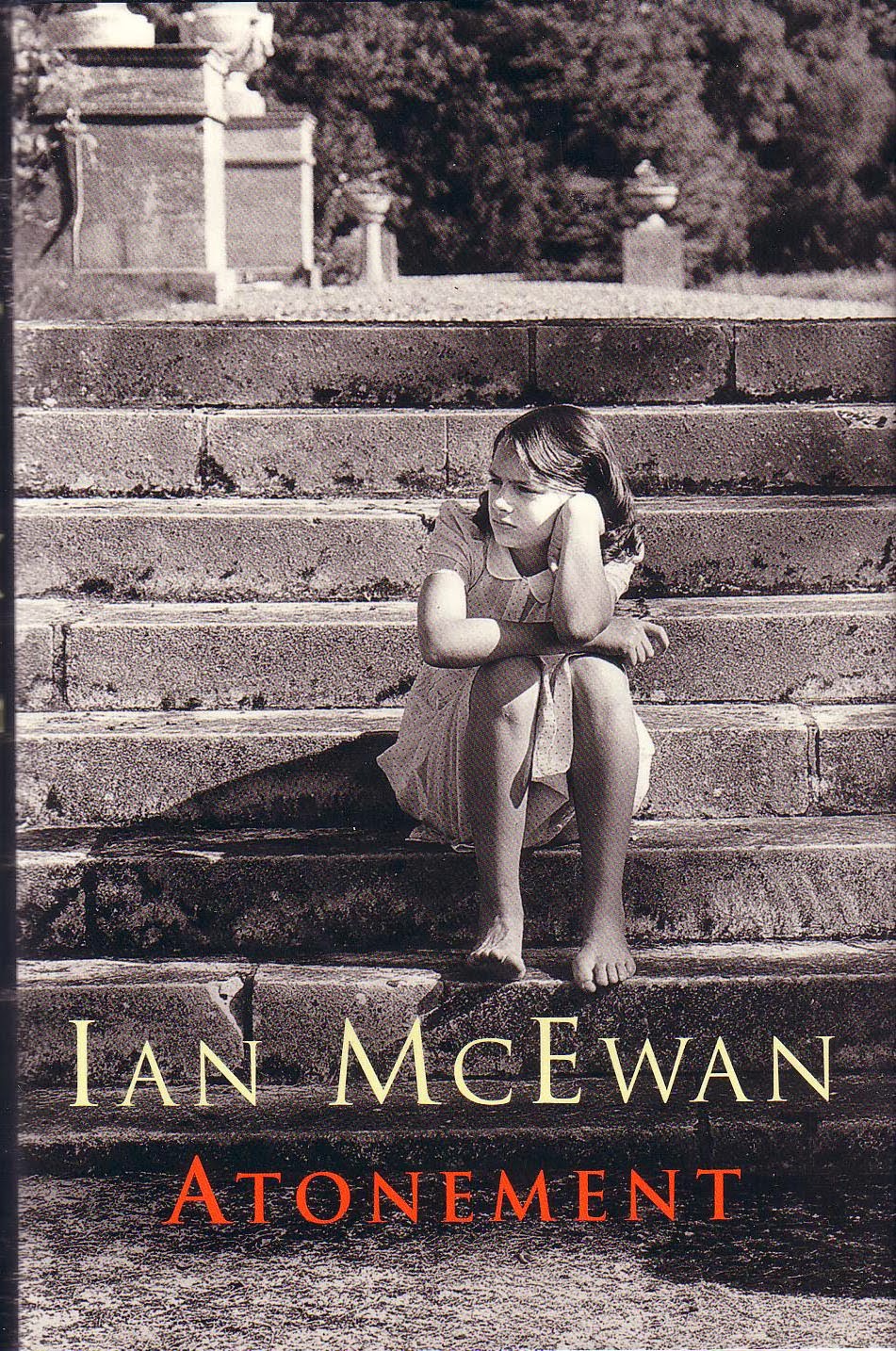 In 1935 young Briony Tallis accidentally sees her sister Cecilia in a moment of intimacy with Robbie, the son of their servant. Briony, whose imagination is full of dark romances, misunderstands the reality of what she sees, and accuses Robbie of a heinous crime – an accusation which ultimately changed the course of all of their lives. Tracing the characters throughout World War II, McEwan explores the themes of childhood, memory and, of course, atonement.
In 1935 young Briony Tallis accidentally sees her sister Cecilia in a moment of intimacy with Robbie, the son of their servant. Briony, whose imagination is full of dark romances, misunderstands the reality of what she sees, and accuses Robbie of a heinous crime – an accusation which ultimately changed the course of all of their lives. Tracing the characters throughout World War II, McEwan explores the themes of childhood, memory and, of course, atonement.
Saturday (2005)
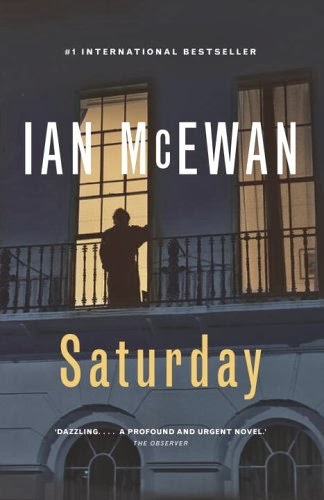 “A novel set within a single day in February 2003. Henry Perowne is a contented man – a successful neurosurgeon, happily married with two grown children. Perowne’s day moves through the ordinary to the extraordinary: from an unusual sighting in the morning sky to his usual squash game, and from trying to avoid the hundreds of thousands of war protestors filling the streets of London, to a seemingly minor car accident. You will be balanced on the edge of your seat as Perowne’s happy safe world is unexpectedly shattered by unforeseen violence.” – Knopf.
“A novel set within a single day in February 2003. Henry Perowne is a contented man – a successful neurosurgeon, happily married with two grown children. Perowne’s day moves through the ordinary to the extraordinary: from an unusual sighting in the morning sky to his usual squash game, and from trying to avoid the hundreds of thousands of war protestors filling the streets of London, to a seemingly minor car accident. You will be balanced on the edge of your seat as Perowne’s happy safe world is unexpectedly shattered by unforeseen violence.” – Knopf.
Solar (2010)
“Michael Beard is in his late fifties; bald, overweight, unprepossessing — a Nobel Prize-winning physicist whose best work is behind him. Trading on his reputation, he speaks for enormous fees, lends his name to the letterheads of renowned scientific institutions and half-heartedly heads a government-backed initiative tackling global warming. An inveterate philanderer, Beard finds his fifth marriage floundering. But this time it is different: she is having the affair, and he is still in love with her. When Beard’s professional and personal worlds are entwined in a freak accident, an opportunity presents itself, a chance for Beard to extricate himself from his marital mess, reinvigorate his career and very possibly save the world from environmental disaster. With a global scope, Solar is a comedy dealing directly with the crises of today. A story of one man’s ambitions and self-deceptions, it is a startling and stylish new departure in the work of one of the world’s great writers.” – Publisher.
Sweet Tooth (2012)
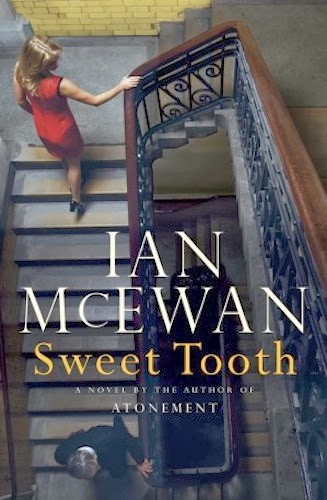 “Serena Frome, the beautiful mathematician daughter of an Anglican bishop, has a brief affair with an older man during her final year at Cambridge, and finds herself being groomed for the Intelligence Service. The year is 1972: Britain, confronting economic disaster, is being torn apart by industrial unrest and Irish terrorism and faces its fifth state of emergency. The Cold War has entered a moribund phase but the fight goes on and MI5 hesitates at little to influence hearts and minds. Serena, a compulsive reader of novels, is sent by her new employers on a secret mission that brings her into the literary world of Tom Haley, a promising young writer. First, she loves his stories, then she begins to love the man. Can she maintain the fiction of her undercover life? And who is deceiving whom? To answer these questions, Serena must abandon the first rule of espionage – trust no one.” – Publisher
“Serena Frome, the beautiful mathematician daughter of an Anglican bishop, has a brief affair with an older man during her final year at Cambridge, and finds herself being groomed for the Intelligence Service. The year is 1972: Britain, confronting economic disaster, is being torn apart by industrial unrest and Irish terrorism and faces its fifth state of emergency. The Cold War has entered a moribund phase but the fight goes on and MI5 hesitates at little to influence hearts and minds. Serena, a compulsive reader of novels, is sent by her new employers on a secret mission that brings her into the literary world of Tom Haley, a promising young writer. First, she loves his stories, then she begins to love the man. Can she maintain the fiction of her undercover life? And who is deceiving whom? To answer these questions, Serena must abandon the first rule of espionage – trust no one.” – Publisher
For readers who like Margaret Atwood, Philip Roth or Peter Carey, Ian McEwan’s books will provide a similar combination of social consciousness and literary brilliance.

